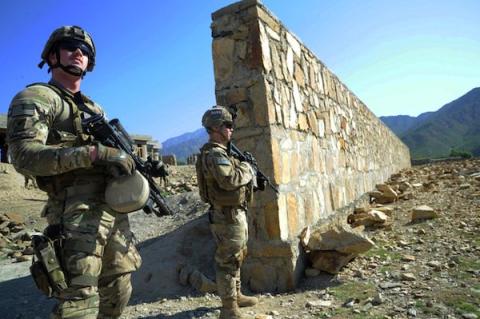report filed by the Special Inspector General for Afghanistan Reconstruction (SIGAR) claims that the Afghan Ministry of Finance has levied $921 million in business taxes against contractors supporting the U.S. war effort in Afghanistan, despite existing agreements that such organizations are tax exempt.
According to the report, 43 of the sampled contractors paid only 7 percent ($67 million) of the levied taxes, creating a legal deadlock which the report attributes to the Ministry of Finance’s failure to “provide sufficient descriptions of the taxes or penalties levied” in their tax assessments.
As a result of the unpaid taxes, the Ministry of Finance has arrested contracting personnel, refused to renew some contractor business licenses, and has frozen company bank accounts. The Ministry has also placed restrictions on the contractors’ freedom of movement, denying them the ability to move supplies and personnel throughout Afghanistan.
The report warns that these actions could result in the “potential interruption of support to U.S. military operations.”
The wars in Iraq and Afghanistan have seen a heavy increase in the use of private businesses working on U.S. government contracts. Contractors provide a wide range of support services to the U.S. military, including vehicle and equipment repairs, base security, and supply delivery.
Some military contractors have even engaged in combat operations alongside U.S. forces. Despite the important role that contractors have played in supporting the Afghanistan war effort, the U.S. government has remained static on the issue.
Afghan Finance Minister Omar Zakhilwal rejected the claims made by the SIGAR report in an interview with an Afghan radio station, stating that they are “absolutely false, totally wrong” and “irresponsible." The Ministry of Finance claims that the taxes are legitimate because they were levied towards subcontractors, which the Ministry argues does not have the same tax-exempt status as prime contractors.
The SIGAR report disagrees, citing interviews with several Ministry officials who acknowledge that current agreements between the U.S. Agency for International Development and the Afghan government specifically state that “any contractor, grantee or any other organization” is exempt from paying Afghan taxes.The SIGAR report urges the Department of Defense to take action by ensuring that all subcontractors obtain required certificates of tax exemption, while also recommending that the State Department develop a unified position on the issue of contractor taxation (though the department has argued such a position already exists).
The resolution of this issue, as well as the immunity status of contractors working in Afghanistan after the 2014 withdrawal deadline, will likely play a pivotal role in shaping the future of U.S-Afghan security operations.
